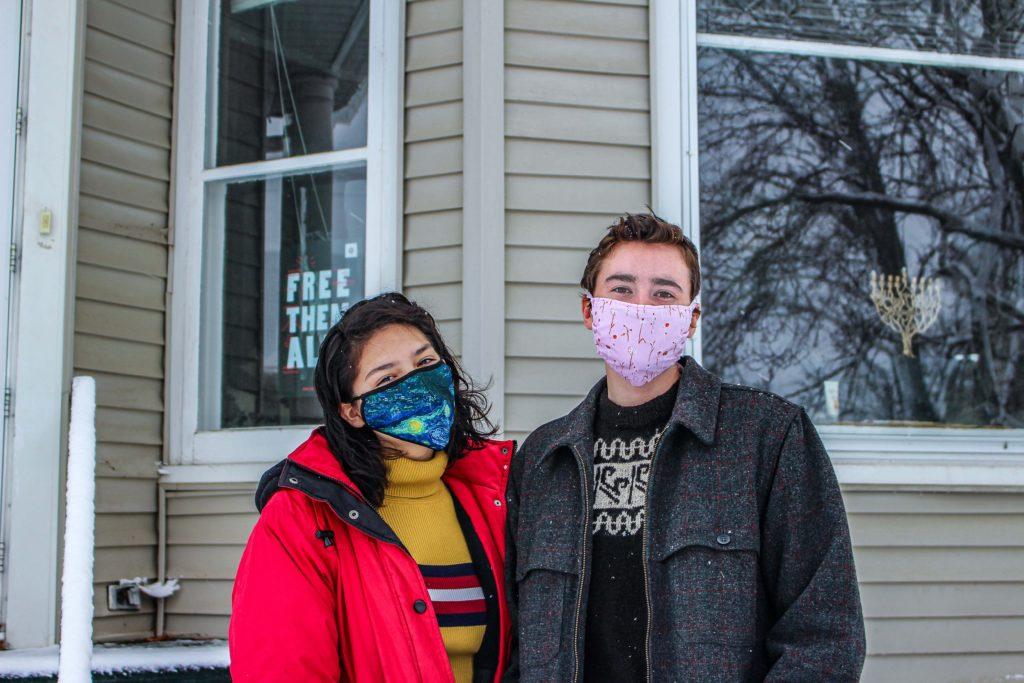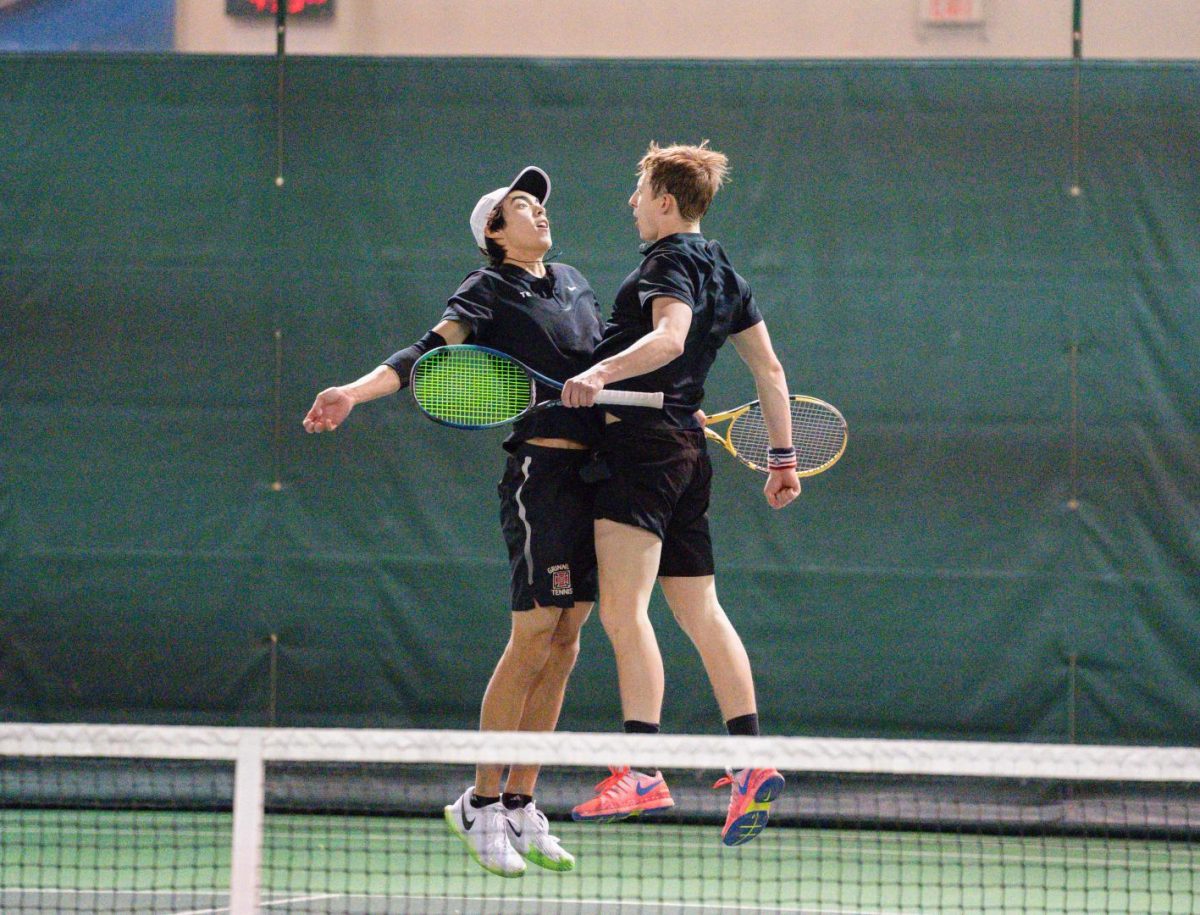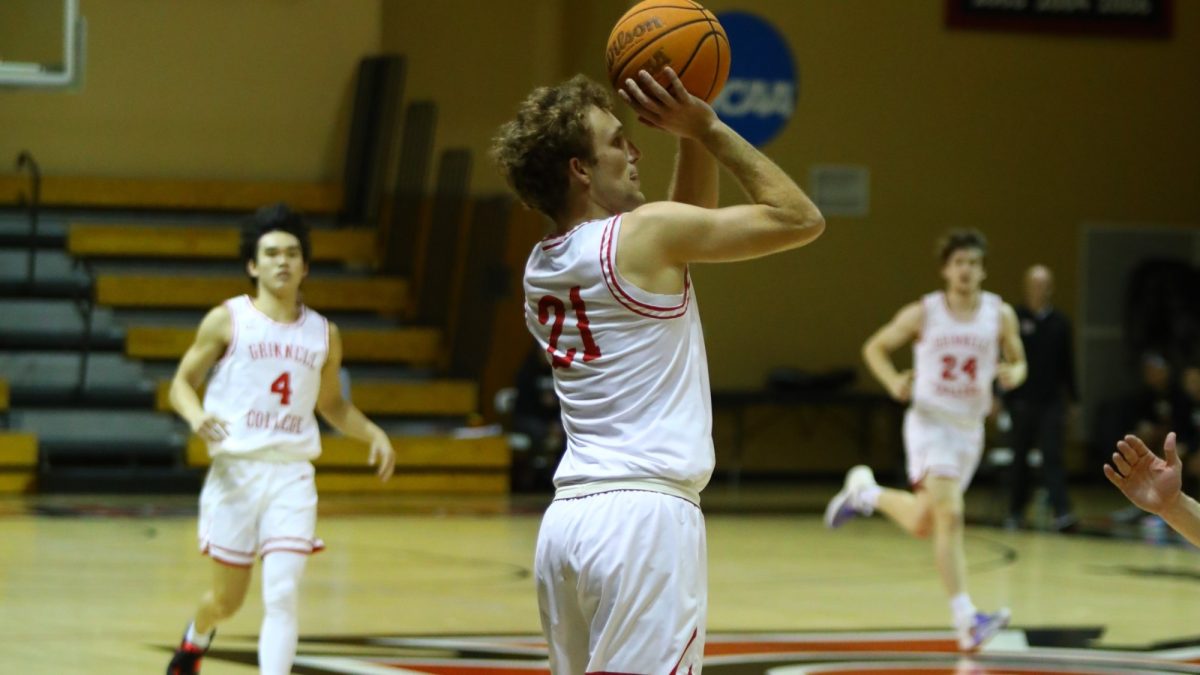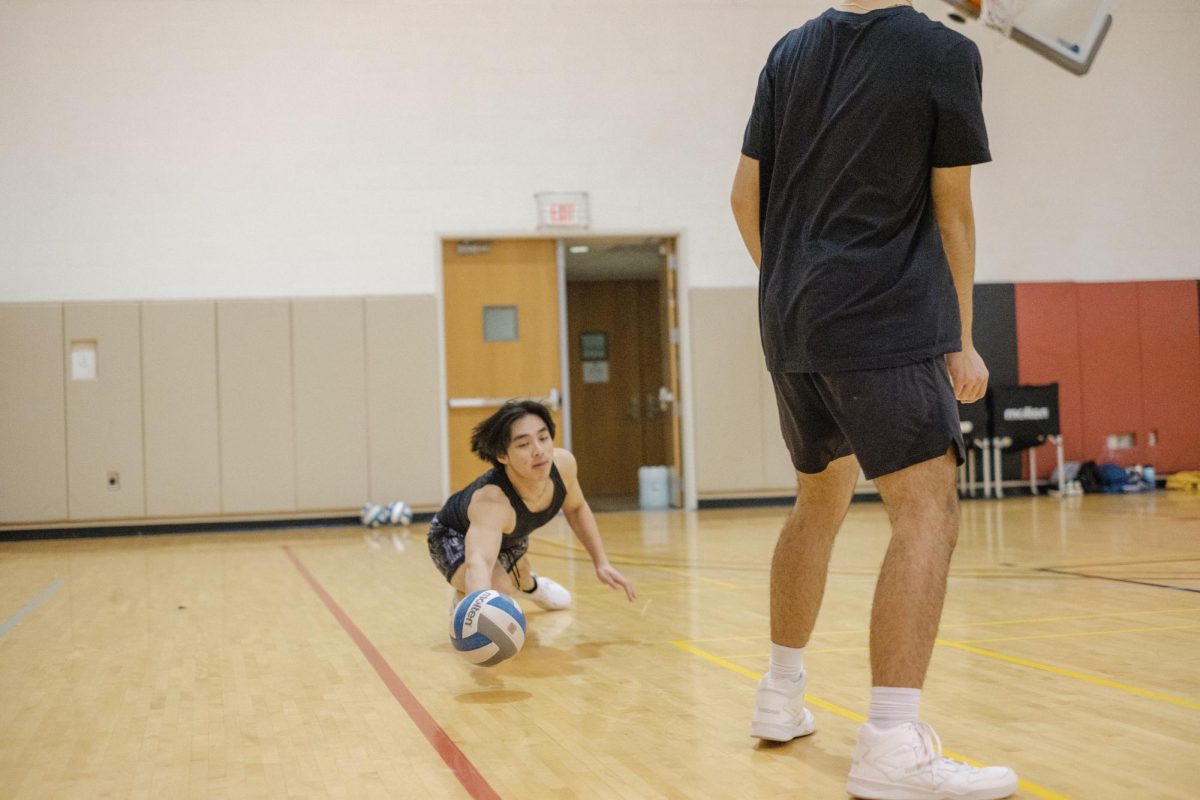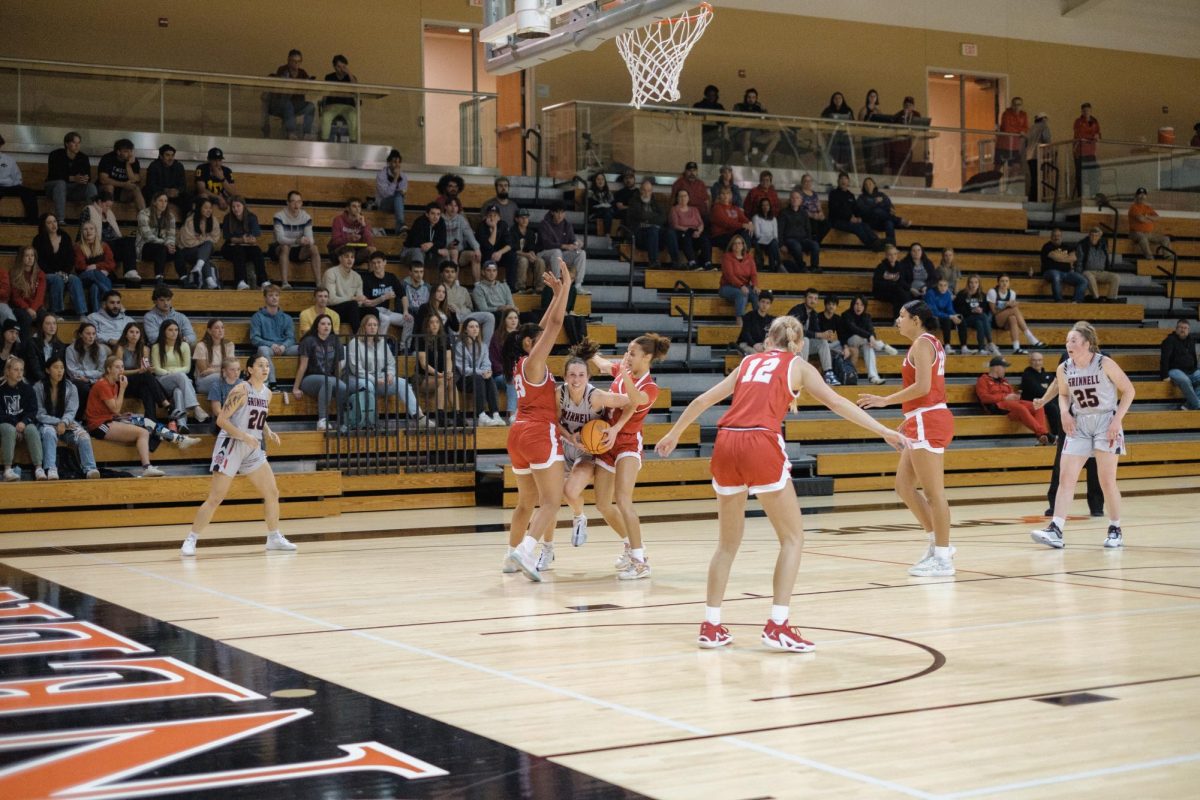Members of the Union of Grinnell Student Dining Workers (UGSDW) elected three third-year students last week into the union’s officer positions for the 2021 term. Sofia Carr ’22 and Ryland Rich ’22 will serve a split term each as presidents of the union, and Zoe Mahler ’22 will be secretary-treasurer for the whole year.
The newly elected officers will take their positions in January, but all three are already planning ways to work with groups around campus to help all student workers, not just those included under the union’s bargaining power.
As split-term leaders, Carr and Rich will each serve one semester as president, with Rich leading the union for spring 2021 and Carr in the role for fall 2021, when Rich will be studying abroad. However, Rich said, the two will be working closely together, particularly in the spring of 2021.
Carr said that having the UGSDW president be a split position will benefit the organization as a whole because Carr and Rich have distinct skill sets and networks of contacts that will allow them to work to serve a broader range of needs than a single officer might be able to.
Meanwhile, Mahler will manage UGSDW funds and day-to-day logistics of meetings and actions as secretary-treasurer. The role, which is the only other elected position on the ballot outside of the executive board members-at-large, includes the responsibilities of managing finances and accounting, collecting dues and preparing the union’s tax and financial reporting.
All three officers have belonged to UGSDW since their first year at Grinnell and have served on the union’s executive board, Rich for two terms and Carr and Mahler for one. Rich has also previously served as Chief Grievance Officer, taking worker grievances to the College administration and working to find future courses of action in response.
Carr, Rich and Mahler have been working to help students be compensated for the jobs they lost since the College shifted to remote learning. Organizing around the issue, which UGSDW has dubbed the “lost jobs campaign,” has shown minimal results, despite multiple protests and actions as well as multiple conversations with College President Anne Harris.
The result Carr hopes for is to “get students compensated for their work and [for] losing their jobs unfairly.”
Rich and Carr are also looking to expand the union’s capabilities. “Academic work is also work,” Rich said. “I’m interested in seeing how we can support … people who want to work but can’t and are putting a lot of labor for their academic work and don’t have time for a job.”
Rich said that they and Carr plan to use the UGSDW’s organizing power and experience with protest to confront professors if they are assigning too much work over the coming remote terms.



















































